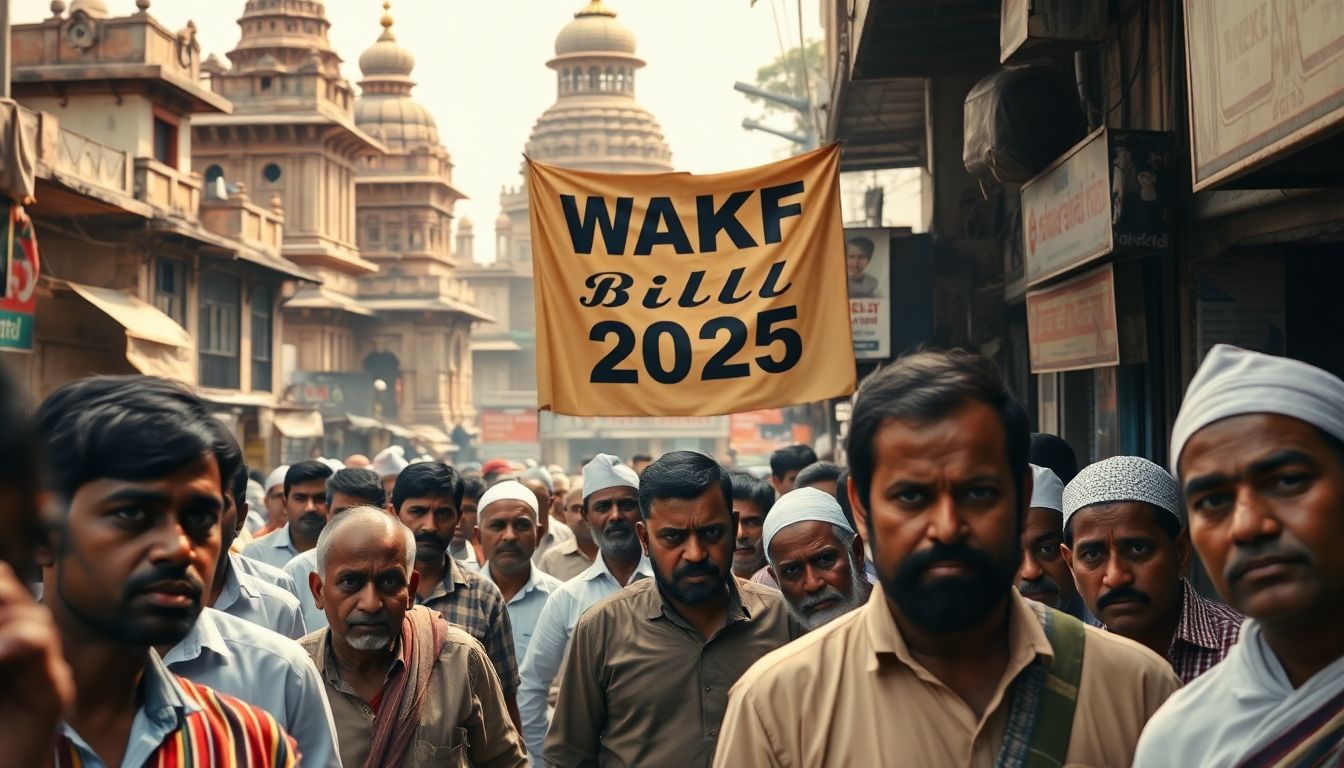WAQF bill 2025 passed by the Sri Narendra Modi's BJP government impact on Hindu and muslim community in India
 |
WAQF Act 2025: Analyzing the Impact on Hindu and Muslim Communities in India
In a significant legislative development, the Bharatiya Janata Party (BJP) government under Prime Minister Narendra Modi passed the WAQF Bill 2025. This bill has stirred considerable debate across different sections of Indian society, particularly within the Hindu and Muslim communities. As India continues to evolve socio-politically, it is crucial to understand what the WAQF Bill entails, why it was introduced, and how it could affect the nation's religious and cultural landscape.
What is the WAQF Bill 2025?
The WAQF Bill 2025 primarily aims to bring transparency, accountability, and modernization to the management of waqf properties in India. Waqf, by definition, refers to an endowment made by Muslims for religious, educational, or charitable purposes. Over the years, waqf properties — which include mosques, graveyards, schools, and other public welfare assets — have faced allegations of mismanagement, unauthorized occupation, and corruption.
Recognizing the need for a more robust legal framework, the BJP government drafted the new WAQF Bill to ensure that these properties are better regulated, utilized for their intended purposes, and protected from illegal activities.
Key Provisions of the WAQF Bill 2025
The Bill introduces several important changes:
-
Digitization of Waqf Records: All waqf properties across the country will be digitally documented to prevent encroachments and fraud.
-
Centralized Monitoring System: A national-level database and monitoring authority will oversee waqf boards, reducing the scope for corruption.
-
Strict Penalties for Misuse: Severe punishments for unauthorized sale, transfer, or misuse of waqf properties.
-
Opening for Broader Community Use: In certain cases, unused or disputed waqf properties can be utilized for educational and health projects that benefit all communities.
-
Increased Government Oversight: Waqf boards will be subject to regular audits and must comply with national transparency standards.
Why Was the Bill Needed?
Historically, waqf boards have managed enormous amounts of land and properties in India, making them one of the largest landowners after the Indian Railways. However, allegations of political favoritism, lack of transparency, and poor administration have plagued the system for decades. Several audit reports pointed to major loopholes and misuse of funds.
The BJP government argues that modernizing the waqf system is necessary to ensure these assets truly benefit the needy, especially the Muslim community, and to curb illegal encroachments which have sometimes led to communal tensions.
Impact on the Muslim Community
For India's Muslim community, the WAQF Bill brings a mixture of hope and concern:
-
Positive Aspects:
-
Better governance can ensure that waqf resources genuinely serve the intended beneficiaries — the poor and marginalized.
-
Digitalization protects properties from being illegally grabbed.
-
Transparent systems may reduce political interference.
-
-
Concerns:
-
Some Muslim leaders fear that increased government control might infringe on religious autonomy.
-
There is apprehension that waqf assets could be repurposed for non-religious uses under political pressure.
-
Skeptics also point to the possibility of selective targeting under the pretext of regulation.
-
It’s important to note that the Bill has clauses ensuring religious sentiments are respected while modernizing administrative processes.
Impact on the Hindu Community
Although the WAQF Bill specifically targets waqf properties, there are indirect implications for the Hindu community as well:
-
Fairness and Equality: Many Hindu groups have historically demanded a similar transparent framework for Hindu religious endowments and temple trusts, which also face accusations of mismanagement. The WAQF Bill sets a precedent for better religious property management across faiths.
-
Land Ownership Clarity: In regions where disputes exist between communities over land ownership, clear digital records of waqf properties can prevent unnecessary conflicts.
-
Educational and Health Initiatives: Where waqf properties are used for secular projects, it can create institutions that serve all communities, including Hindus.
In a broader sense, this move is seen as part of a larger initiative by the Modi government to streamline religious and charitable trusts under modern law.
Political and Social Reactions
The passage of the WAQF Bill 2025 has triggered varied reactions:
-
Supporters hail it as a forward-thinking move that ensures better asset management and social upliftment.
-
Critics view it with suspicion, fearing it could be used politically against minority communities.
-
Neutral observers suggest that much will depend on how fairly and impartially the new system is implemented.
Leaders across the political spectrum have called for equal laws for all religious endowments, hinting that reforms might soon extend to Hindu temples, Sikh gurdwaras, and Christian institutions as well.
Conclusion: A Step Toward Better Governance
The WAQF Bill 2025 represents an important shift toward transparency and modernization of religious property management in India. While it carries concerns that need to be addressed carefully, its potential to bring positive change cannot be ignored.
For India's diverse and vibrant religious communities, the success of this bill will depend heavily on fair implementation, consultation with community leaders, and commitment to secular principles.
The coming years will reveal whether the WAQF Bill can truly fulfill its promise of making waqf properties a powerful tool for public good — one that transcends religious divisions and strengthens the fabric of Indian society.
Comments
Post a Comment